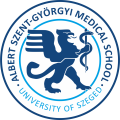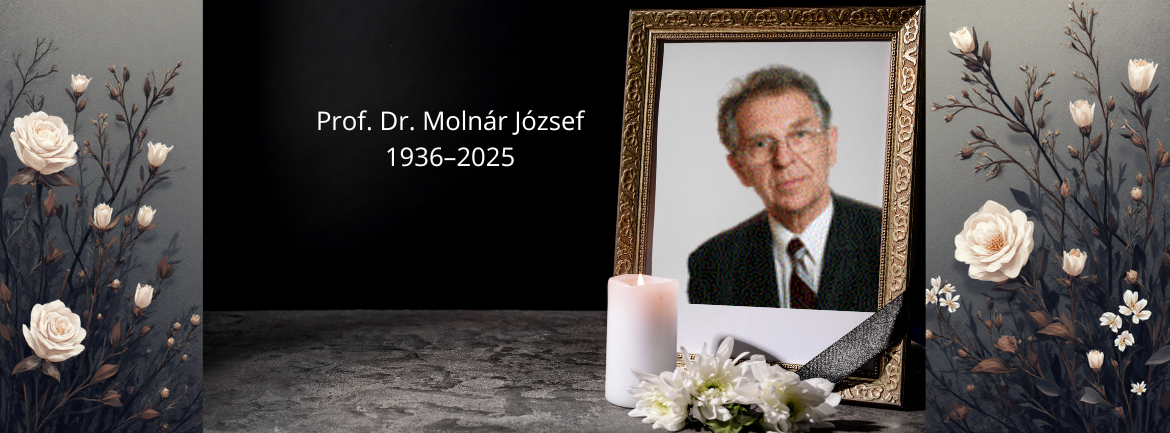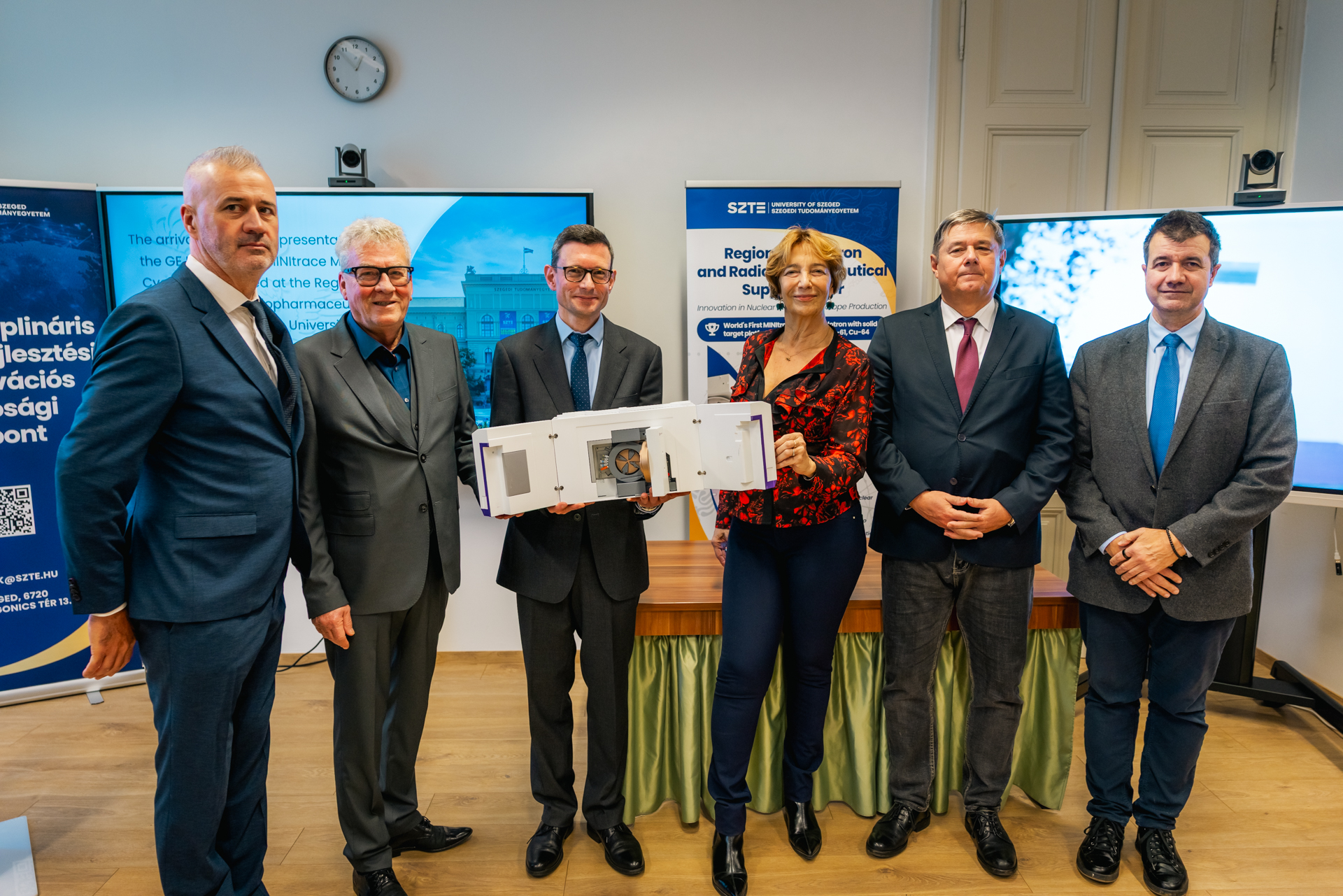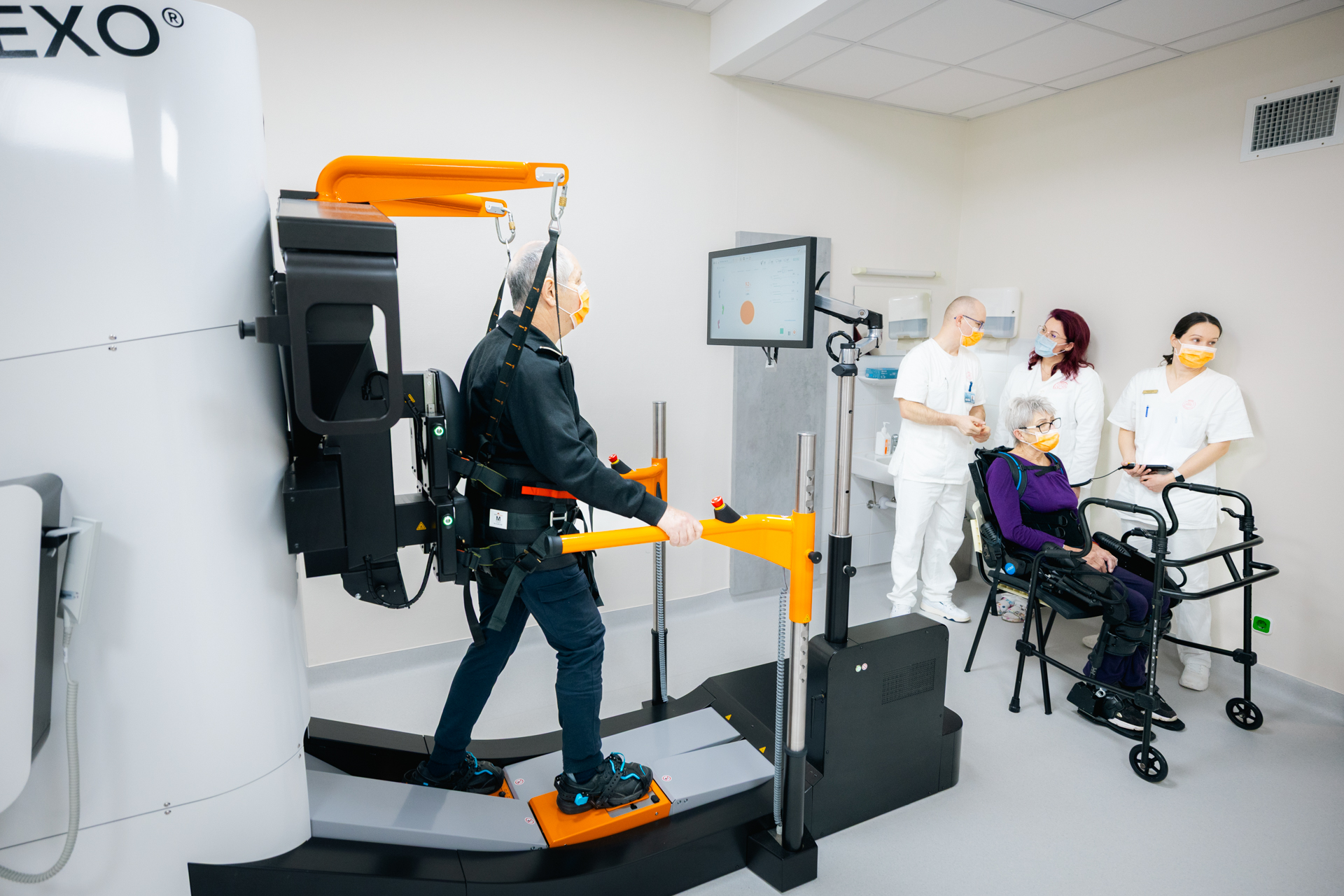University of Szeged
Albert Szent-Györgyi Medical School
Foreign Students' Secretariat
Your Education. Our Mission.
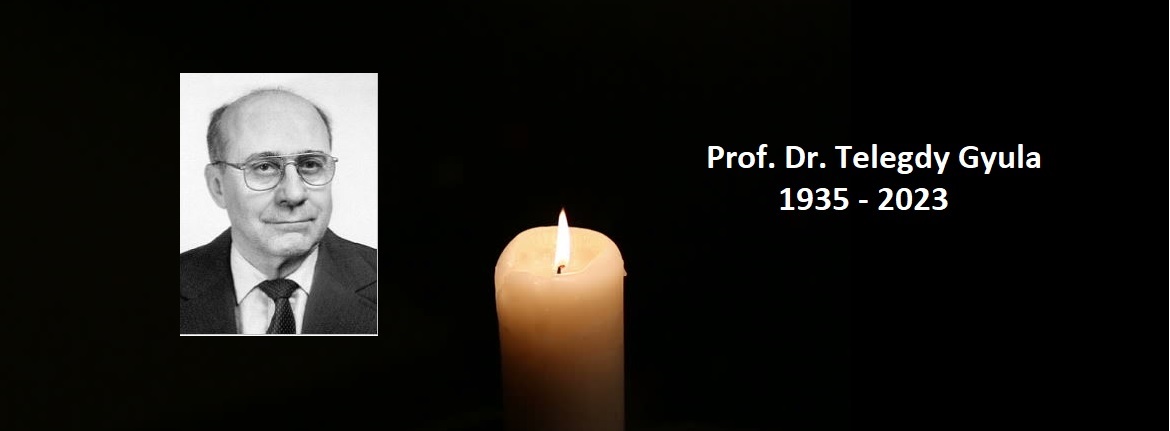
In memoriam of Prof. Dr. Gyula Telegdy
Prof. Dr. Gyula Telegdy was born on 5 June 1935 in Sibiu (Romania). During his career, he worked as a neuroendocrinologist, clinician, teaching physician and researcher. Between 1992 and 1995 he was President of the Hungarian Society for Endocrinology, and between 1993 and 1998 he was Vice-President of the Hungarian Physiological Society.
He received his medical degree from the Medical University of Pécs in 1959. After graduation, he worked at the Department of Physiology at the same university. In 1964 he was awarded a Lalor Fellowship and subsequently spent 2 years as a researcher in the United States of America. Between 1968 and 1971, his research was supported by the Ford Foundation at the Karolinska Institute in Stockholm. In 1975, he was appointed Head of Department at the Department of Pathophysiology, Albert Szent-Györgyi Medical University in Szeged. He held this position for 25 years. For a long time, he was also head of the Neurohumoral Regulations Research Group, a joint research group of the University and the Hungarian Academy of Sciences. During his tenure as Dean, he contributed to the introduction of the English Programme in Szeged, which allowed foreign students to study Medicine at the faculty. After 2005, he continued to work as Professor Emeritus at the Department of Pathophysiology.
His main area of research was neuroendocrinology. Among other things, he has shown that the fetus and placenta act as one single unit, the fetoplacental unit and that the hypothalamic-pituitary-adrenal axis is regulated by several neuropeptides. In 2004, he was awarded the Commander’s Cross of the Hungarian Order of Merit, in 2006 he was made an honorary citizen of Szeged, and in 2020 he became the first person to receive the Pro Scientia Lifetime Achievement Award of the Szeged Regional Committee of the Hungarian Academy of Sciences.
In his field of research, he has built an extensive network of national and international cooperation. Prof. Dr. Gyula Telegdy is the author of nearly 500 scientific publications in English and 35 in Hungarian, as well as 2 books. His work as an educator was exemplary. Three of his students became full members of the Hungarian Academy of Sciences, while 2 others became doctors of the same institution. Under his supervision and guidance, 26 researchers have received their PhD degrees. Prof. Telegdy was highly respected by his colleagues and they are still grateful to him for his assistance.
Professor Telegdy lived for his work, but always spoke proudly of his family.
Rest in peace, Professor Telegdy.

